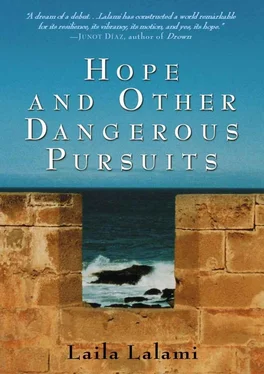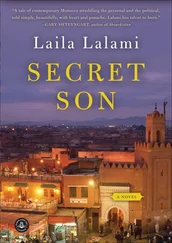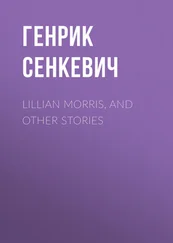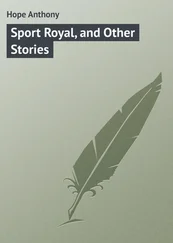But other people believed her. Halima could have drowned with the others, they said. The captain had forced them out of the boat before they could get ashore. The water was cold, the current was strong, Halima didn’t know how to swim. Yet Farid had pulled her to safety somehow. And even though the Spanish police were waiting for them right on the beach, at least they were alive. Besides, the boy had helped his sister, Mouna, and his younger brother, Amin, as well. They had all survived. Farid was a saint.
Even Halima’s husband, Maati, thought it was a miracle. When he’d found out she’d tried to cross the Strait of Gibraltar, he’d kicked the TV off its stand and smashed what remained of the dishes. He told everyone that if all Halima wanted was a divorce, then why didn’t she just pay him, like he’d asked her? He’d have divorced her. And what’s five thousand dirhams for a woman whose brothers work in France? They could afford it. But to take his children, to run away like this, to risk her life and theirs, well, those were clearly the actions of a crazy woman. Is it any wonder he beat her? But even a hemqa like Halima had done one thing right, he said. She’d given birth to his son, to Farid, and his little boy had saved her life. She was lucky.
AFTER HALIMA RETURNED to Casablanca, she didn’t move back in with her mother, who had never agreed with her decision to leave, and who, Halima feared, would try to convince her to get back together with Maati. Instead she borrowed money again, this time from one of her cousins, and took a room with her three children in Sidi-Moumen, a slum outside the city. She couldn’t find a janitorial job like the one she had before she left, so she joined the hordes of day workers at the market, spent her time squatting on the dirt road, waiting for a nod from someone who needed laundry washed or spring cleaning done. The vendors arrived first, their carts piled high with oranges or tomatoes or sweet peas. Then the buyers drifted through, haggled over prices, bought their food. After lunchtime the marketplace emptied slowly, and by the time the afternoon prayer was called she’d get up and go home. Sometimes, when she couldn’t get a job, when the sun beat down on her until she thought her head would whistle like a kettle, she grew angry with Farid. Why had he saved her? Why had he saved any of them? There wasn’t any point in living when all you could do was survive.
Then one day she managed to get one of the vendors, who’d cleared most of his cart by lunchtime, to give her his leftover ears of corn. She planned to barbecue them for dinner. She was fanning the fire with the rabuz when someone knocked at the door. Maati was standing on her doorstep, his body filling the narrow frame. His shirt was open to his chest, displaying hair that had started to go white. His eyes were bloodshot. Halima turned on her heel, scanned the room, trying to figure out where she could hide in such a small place. But Maati grabbed her wrist and, without moving, swung her back toward him. She bit her lip, steeled herself for the blow. But Maati didn’t hit her. Instead, he stuffed a piece of paper in her hand. “If this is all you wanted,” he said, “now you have it.” And, as if to punctuate his declaration, he spit on her. The phlegm landed on her shirt, but all Halima could see was the divorce paper, with the elegant penmanship and unmistakable signature of the ‘aduls at the bottom. He turned around and left.
Halima stood, stunned. The fear that had knotted her stomach at the sight of her now ex-husband subsided, and in its stead she felt the rush of blood to her temples. This feeling of elation was entirely new to her. She had tried everything to get this piece of paper, and when she least expected it, it had been delivered right to her doorstep. What had changed Maati’s mind? From her mother, Halima had heard that barely a month after she’d run away, Maati had tried to marry again, but the girl’s parents had heard about what happened to Halima and turned him down. Maybe he wanted to erase her from his life and start again with someone else. But then she remembered the long train ride from Tangier back to Casablanca, when Farid had turned to her and said, “I wish Baba had divorced you the first time you asked.” She’d chuckled at his comment, ruffled his hair with her hand, and turned to look at the scenery outside. Now she folded the sheet of paper carefully and slipped it inside her purse. Her hands still trembling, she put a kettle on the mijmar and made herself a pot of tea. Farid’s wish had been granted. She had her divorce. She sat, her chin resting on her hand, thinking about what it meant. And she remembered the bleeding tree.
When Halima was five years old, her mother had come home from the market, excited about the news she had heard: There was a bleeding tree, a holy tree, in Rabat. She’d packed their lunch and they’d taken the train to the capital, riding in the fourth-class cabin, where farmers sat on wooden benches, chatting over their bags, their crates, and their chickens. It was Halima’s first trip to the city, and she was disappointed by the quiet streets, the groomed lawns in front of government buildings. The bleeding tree stood in a sparsely planted lot across from the flower market, a few steps away from the police station. A dozen people were there already, some sitting, some standing. From them, Halima and her mother heard the story of the tree. A developer had planned on tearing it down in order to make room for a high-rise, but when the workers tried to fell it, it started bleeding. The pilgrims showed up soon after, some collecting the blood-red liquid for use in concoctions, others using the site as a prayer area. Work had to be halted. Today, someone said, the city had dispatched a scientist to tell people that there was no miracle.
Halima and her mother maneuvered their way to the front line of the crowd, where they could get a better view of the scientist. He was a young man, little more than a teenager, his hair all fluffed up in an Afro like those American singers on TV. He wore a striped button-down shirt and bell-bottom pants. A pencil was tucked behind his ear. He stood, quietly eating sunflower seeds, until everyone settled down. Then he walked up to the tree, flicked open a Swiss Army knife, and made an incision in the trunk. He discarded the piece of wood and, pointing to the blood-red sap, he said that this was a normal substance made by this particular kind of eucalyptus. He called the tree a fancier name, something that sounded like French or Spanish. The tree had been making sap for a hundred years, maybe more. It was perfectly natural. There was no miracle. There was nothing to see. Go home, he said. People shifted on their legs, looked around at each other, but remained standing. The scientist shrugged and left. Foolish man, people said. What does he know about miracles? He sullied this holy ground. They pointed to the soft, humid earth, where sunflower-seed shells remained, a testament of his passage through the shrine. Halima’s mother ran her crooked fingers along the trunk and took some sap, collecting it in a recycled pill bottle.
After the trip to Rabat, Halima’s mother returned to Casablanca, full of hope that her arthritis, which had been flaring up lately, would subside; that her prayers would be answered. Halima’s father, who always sat on the corner divan smoking unfiltered cigarettes, shook his head and said she was crazy. For a while, however, Halima’s mother did get better. She’d started knitting again, and the sound of her needles working formed a soundtrack to every evening for a month. But soon news came from Rabat that the developer had cut the tree down and started work on the new building. When the arthritis flared up again, Halima’s mother said it was because the tree had been torn down.
Читать дальше












